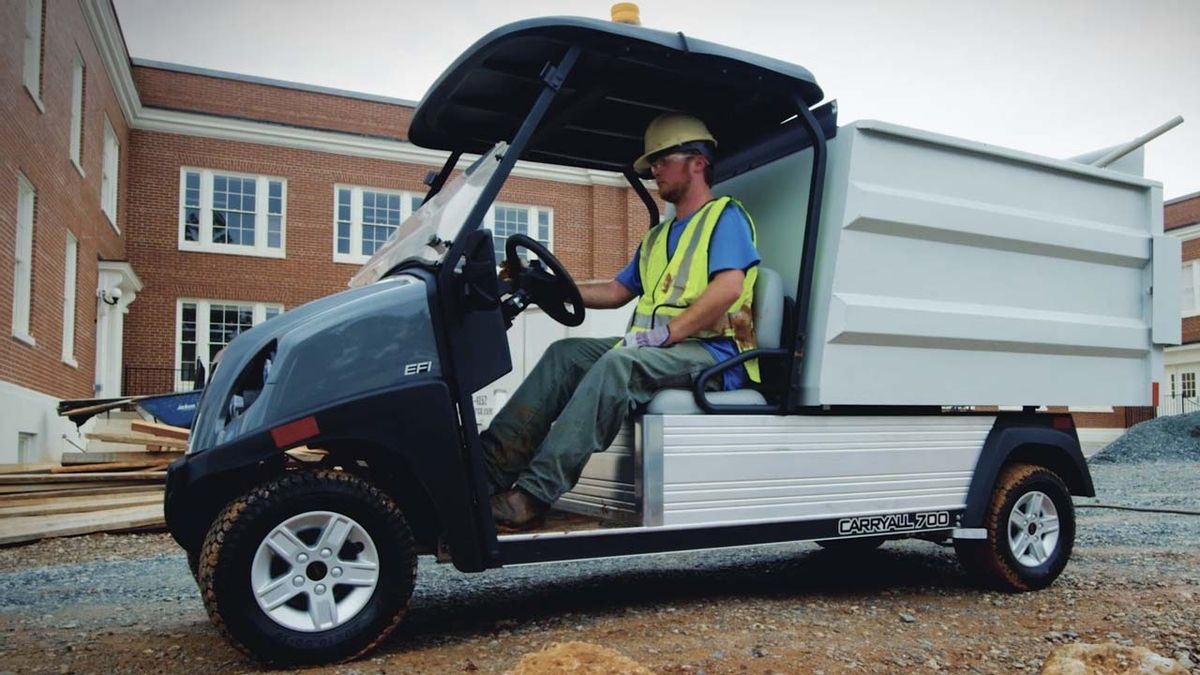Tennessee Valley Authority Paves the Way for a Greener Future with…

In a world where the clamor for sustainability grows louder each day, the Tennessee Valley Authority (TVA) sheds light on a path toward a greener future. With an ambitious objective set for the US Southeast region to achieve net zero carbon emissions by 2050, the spotlight turns to an unlikely hero: electric vehicles (EVs). This revelation comes at a time when the streets buzz not just with the sounds of conventional traffic but with the possibilities of a cleaner, more sustainable mode of transport. Meanwhile, an innovative solution emerges to address urban congestion and environmental concerns, combining the practicality of box trucks with the simplicity of golf carts. This narrative unfolds against the backdrop of today’s date, February 17, 2024, marking a pivotal moment in our journey towards decarbonization.
Driving Towards a Greener Tomorrow
The TVA’s recent study does more than just envision a future; it charts a course for the Southeast to lead in the EV revolution. It’s a region already pulsating with the rapid growth of public EV charging stations, a critical infrastructure that promises to fuel not just vehicles but also the dreams of a cleaner planet. The electric vehicle industry, with its burgeoning presence in the Southeast, stands as a testament to the region’s ambition and potential to capture a significant share of EV-related investments and jobs. This narrative isn’t merely about technological advancement; it’s a story of environmental stewardship and economic opportunity intertwining in the march towards decarbonization.
A Glimpse into the Future of Urban Delivery
On the bustling streets of urban centers, where box trucks loom large and often unwelcome, a miniature innovation drives a conversation about efficiency and environmental consciousness. Discovered within Alibaba’s electric car catalog, a small electric vehicle, built on a golf cart frame, emerges as a potential game-changer for delivery companies. These vehicles, boasting a modest top speed of 20-25 mph, could navigate city streets and bike lanes with ease, potentially transforming urban delivery logistics. With a base price of $6,000 and a rear cargo box spacious enough to accommodate a large number of packages, these mini electric vehicles represent a cost-effective, eco-friendly solution to urban congestion and pollution. However, the cautionary tale of ordering vehicles sight unseen from Alibaba underscores the risks and uncertainties that come with innovation.
The Intersection of Sustainability and Practicality
The TVA’s study and the advent of miniature electric delivery vehicles underscore a broader narrative: the evolving relationship between humanity and technology in the quest for sustainability. As the Southeast positions itself as a leader in the electric vehicle industry, it not only embraces the environmental benefits of EVs but also the economic growth and job creation opportunities they bring. Similarly, the exploration of compact electric vehicles for urban delivery highlights a creative approach to solving practical problems while adhering to environmental goals. These developments signal a shift towards a future where technology and sustainability converge, offering hope and direction in the fight against climate change.
In conclusion, the journey toward net zero carbon emissions by 2050 is paved with innovation, ambition, and a collective commitment to a sustainable future. The TVA’s focus on electric vehicles as a cornerstone of decarbonization efforts, coupled with inventive solutions for urban logistics, illuminates the path forward. It’s a narrative that transcends the immediate implications of technological advancement, touching on the broader themes of environmental responsibility, economic opportunity, and the transformative power of human ingenuity. As we move forward, the Southeast’s leadership in the EV arena and the exploration of alternative delivery methods stand as beacons of progress in our ongoing quest for a cleaner, greener world.

